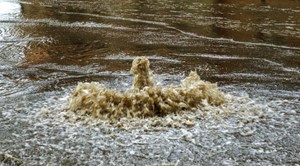Sewage discharges raise concerns for Boston water safety
(UI) — Local authorities have issued a public health advisory following recent sewage discharges, also known as combined sewer overflows (CSOs), posing potential risks to public health in Boston. Under state regulations, it is mandated for local public health departments to notify the public when such discharges occur, particularly if they last for more than two hours.
The advisory urges the public to refrain from any contact with affected water bodies for at least 48 hours following a sewage discharge or overflow, during rainstorms, and for 48 hours after the cessation of rainstorms. This precautionary measure is necessary due to heightened health hazards from bacteria or other pollutants associated with urban stormwater runoff and untreated or partially treated wastewater discharges.
Several locations have been affected, including the Massachusetts Water Resource Authority Outfall MWR203 in Charlestown at Prison Point, the Massachusetts Water Resource Authority Outfall MWR201 in Cottage Farm location in Cambridge, and various outfalls managed by the Boston Water and Sewer Commission in East Boston and the Fort Point Channel area.
These discharges occurred during a weather event on Saturday, March 23, with advisory expiration set for Monday, March 25, 48 hours after the respective overflow incidents ended. It's worth noting that these details are subject to revision, and additional overflows related to the same weather event may be reported on the Boston Water and Sewer Commission and Massachusetts Water Resources Authority websites.
Combined sewer overflows happen when heavy storms overwhelm the combined sewerage system, causing rainwater to mix with wastewater and discharge into nearby water bodies. This mechanism prevents sewage backups into residential and commercial properties.
Related News
From Archive

- OSHA cites Florida contractors for trench safety violations at sewer and excavation sites
- Biden-Harris administration invests $849 million in aging water infrastructure, drought resilience
- Texas contractor penalized by OSHA for repeated trench safety violations
- West Virginia approves $67 million for water, sewer projects
- Mark Boyer named 2025 MVP of underground infrastructure industry




Comments